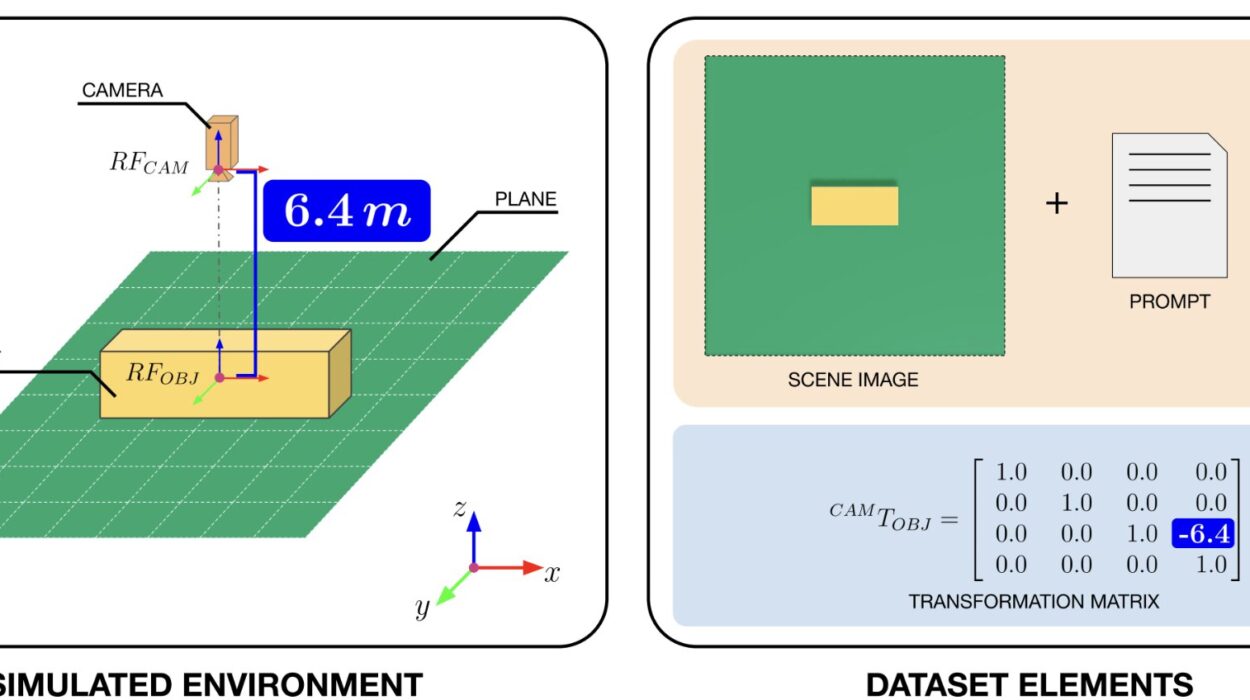In today’s hyper-connected world, information is not just a tool for decision-making; it is the very fabric that shapes the global landscape. We have entered the age of Big Data, a period where the sheer volume, velocity, and variety of information generated by individuals, organizations, and systems are not just immense but exponentially expanding. Data is being generated at a pace that is almost impossible to fathom. Each time you send an email, post on social media, make a transaction, or even interact with a smart device, you create data. This data, though often intangible, is increasingly driving decisions at every level, from personal choices to national policies.
Big Data has become the backbone of many industries, transforming how businesses operate, governments make decisions, and societies evolve. But what exactly makes data so powerful? And how has it come to rule the world?
The Mechanics of Big Data
Big Data is not just about the quantity of data but also about its ability to be analyzed and transformed into meaningful insights. The traditional methods of data storage and analysis no longer suffice to process the mountains of information available today. With Big Data, new technologies such as machine learning, artificial intelligence (AI), and advanced analytics are employed to process, understand, and predict patterns in this vast sea of information.
To understand Big Data’s true power, we need to recognize the three main characteristics that define it: Volume, Velocity, and Variety.
Volume
The volume of data refers to the sheer quantity of data being produced daily. In 2020, over 2.5 quintillion bytes of data were generated every day, and this number is rapidly growing. Whether it’s text, images, videos, or sensor-generated data, the world is continuously creating massive amounts of information. This data can be generated by consumers, machines, or natural events, and its volume is so overwhelming that traditional systems struggle to store and process it all.
Velocity
The velocity of data refers to the speed at which it is created and processed. In the digital age, data doesn’t sit around waiting to be processed. Information is being created and transmitted at unprecedented speeds. Social media posts, for example, appear in real-time; financial markets operate in seconds, and self-driving cars rely on instant data processing to make decisions in fractions of a second. The ability to handle and analyze data at this velocity is what allows businesses to make instant decisions, optimize operations, and predict future trends with high precision.
Variety
Variety speaks to the different types of data being generated. Unlike the structured data of traditional databases, Big Data includes unstructured and semi-structured data, such as text, images, audio, video, and sensor data. The challenge here is not only the volume but also the ability to process and derive insights from such diverse sources of data. To truly harness the power of Big Data, systems must be capable of working with these different formats and integrating them into a cohesive, actionable intelligence system.
Big Data’s Influence on Business
Big Data’s transformative power is perhaps most evident in the business world. Companies are leveraging this information to gain competitive advantages, improve customer experience, and innovate. Through data analysis, organizations can predict customer behavior, optimize product offerings, and create personalized marketing strategies.
Customer Insights and Personalization
One of the most significant impacts of Big Data is its ability to offer deep insights into consumer behavior. With the ability to collect and analyze data from a multitude of sources—such as purchase history, social media activity, and browsing behavior—businesses can gain an unprecedented understanding of their customers. These insights allow companies to offer tailored experiences, ensuring that they meet the specific needs and preferences of individual customers.
For example, streaming services like Netflix and Spotify use Big Data algorithms to recommend content based on users’ past behavior. Similarly, online retailers like Amazon use Big Data to suggest products that a customer is likely to purchase, based on previous interactions and other customers’ buying habits. This level of personalization not only increases sales but also strengthens customer loyalty.
Predictive Analytics
One of the most powerful applications of Big Data in business is predictive analytics. By analyzing historical data, businesses can forecast future trends and behaviors. This enables companies to make proactive decisions, from inventory management to marketing campaigns, before an event even occurs.
Retailers, for example, can predict demand for products by analyzing customer purchasing patterns and seasonal trends. Airlines can optimize flight schedules and pricing based on customer behavior and external factors like weather patterns and economic conditions. The predictive power of Big Data has made it possible for businesses to stay ahead of the competition, react more quickly to changes in the market, and plan for the future with greater accuracy.
Operational Efficiency
Big Data is also playing a crucial role in improving operational efficiency. By analyzing data from machines, sensors, and production lines, companies can detect inefficiencies, reduce downtime, and improve the performance of their systems. This is particularly prevalent in industries such as manufacturing and logistics, where data from connected devices (the Internet of Things) can help track inventory, monitor equipment performance, and optimize supply chains.
For instance, General Electric uses data analytics to monitor the performance of jet engines, helping airlines reduce maintenance costs and increase fuel efficiency. Similarly, Walmart has used Big Data to streamline its supply chain operations, ensuring products are available in the right stores at the right time.
The Power of Big Data in Healthcare
Healthcare is another field where Big Data has shown its transformative potential. The healthcare industry generates an enormous amount of data—from patient records and clinical trials to medical imaging and wearable health devices. By analyzing this data, healthcare providers can improve patient care, reduce costs, and even predict outbreaks of diseases.
Personalized Medicine
One of the most exciting possibilities of Big Data in healthcare is personalized medicine. By analyzing genetic information alongside medical history, lifestyle data, and environmental factors, doctors can tailor treatments to individual patients. This not only improves the effectiveness of treatments but also reduces the risks associated with generic treatment plans. Big Data enables doctors to predict which treatments will be most effective for a specific individual based on their unique genetic makeup, leading to more successful health outcomes.
Early Detection and Disease Prevention
Big Data is also enabling earlier detection of diseases. For example, machine learning algorithms can analyze medical images to detect early signs of diseases like cancer, often with greater accuracy than human doctors. Similarly, wearable devices like Fitbit and Apple Watch collect data on users’ heart rates, activity levels, and even sleep patterns, helping users track their health and detect potential problems before they become serious.
Moreover, Big Data allows for better disease prevention. By analyzing data from a large number of individuals, healthcare providers can identify patterns in disease outbreaks, track the spread of epidemics, and develop targeted public health initiatives. During the COVID-19 pandemic, for instance, governments and organizations around the world used Big Data analytics to track the virus’s spread, predict infection rates, and allocate resources effectively.
Government and Public Policy
Big Data is not only changing businesses and industries; it is also reshaping the way governments and public institutions make decisions. From urban planning to national security, Big Data is helping policymakers make more informed decisions that improve quality of life, enhance public safety, and address social challenges.
Urban Planning and Smart Cities
Big Data is playing a critical role in the development of smart cities. By analyzing data from traffic sensors, public transportation systems, energy consumption patterns, and even social media, cities can optimize their infrastructure and services. For example, New York City uses Big Data to monitor traffic flow and optimize traffic lights to reduce congestion. Similarly, cities like Singapore are using data from public transportation systems to create more efficient routes and schedules.
National Security
Big Data is also revolutionizing national security. Intelligence agencies are leveraging data analytics to detect patterns of suspicious behavior, track potential threats, and prevent criminal activities. With vast amounts of data coming from sources like social media, surveillance cameras, and communication networks, Big Data allows for real-time analysis and quicker response times. Governments can detect terrorist activities, identify organized crime networks, and monitor potential security threats, all before they escalate.
Ethical Considerations and Challenges
While the power of Big Data is undeniable, it also raises significant ethical concerns. The ability to collect, store, and analyze vast amounts of personal information comes with serious privacy risks. There are concerns about how this data is being used, who has access to it, and how it is protected from misuse.
Privacy and Data Protection
One of the biggest concerns surrounding Big Data is privacy. As more and more of our personal information is stored and analyzed, there is a risk that this data could be accessed by malicious actors, misused by corporations, or exploited by governments. Data breaches and unauthorized access to personal information have become all too common, with high-profile incidents like the Facebook-Cambridge Analytica scandal and the Equifax breach highlighting the vulnerabilities in data security systems.
Bias and Discrimination
Another issue is the potential for bias in data analysis. If the data being analyzed is incomplete or biased, it can lead to unfair or discriminatory outcomes. For instance, algorithms used in hiring practices or law enforcement could perpetuate existing societal biases, leading to discrimination against certain groups of people. This is particularly problematic when the algorithms are not transparent, and individuals have no way of understanding or challenging the decisions being made.
The Digital Divide
Big Data also exacerbates the digital divide. Access to advanced data analytics and the technologies that drive Big Data is often limited to certain regions, organizations, and individuals. This creates a disparity in who benefits from the insights and opportunities that Big Data offers. Those without access to the necessary technologies or the skills to interpret data are left behind, further widening the gap between the haves and have-nots.
The Future of Big Data
The future of Big Data is both exciting and challenging. As technology continues to evolve, we can expect even more sophisticated ways to collect, analyze, and apply data. The integration of AI, the Internet of Things, and advanced analytics will continue to unlock new possibilities, enabling even more personalized services, smarter cities, and more effective healthcare.
However, the growth of Big Data also necessitates more robust governance, regulation, and ethical considerations. As we move forward, it will be crucial to strike a balance between harnessing the power of Big Data and safeguarding individual privacy, fairness, and equality.
Conclusion: The World Driven by Data
Big Data has undeniably changed the world as we know it. From revolutionizing business models and healthcare to reshaping government policies and everyday life, data is at the center of it all. The potential of Big Data is limitless, but it is up to us to ensure that it is used responsibly, ethically, and for the greater good. As we continue to live in a world increasingly defined by information, one thing is clear: Data rules the world, and its influence will only continue to grow.






